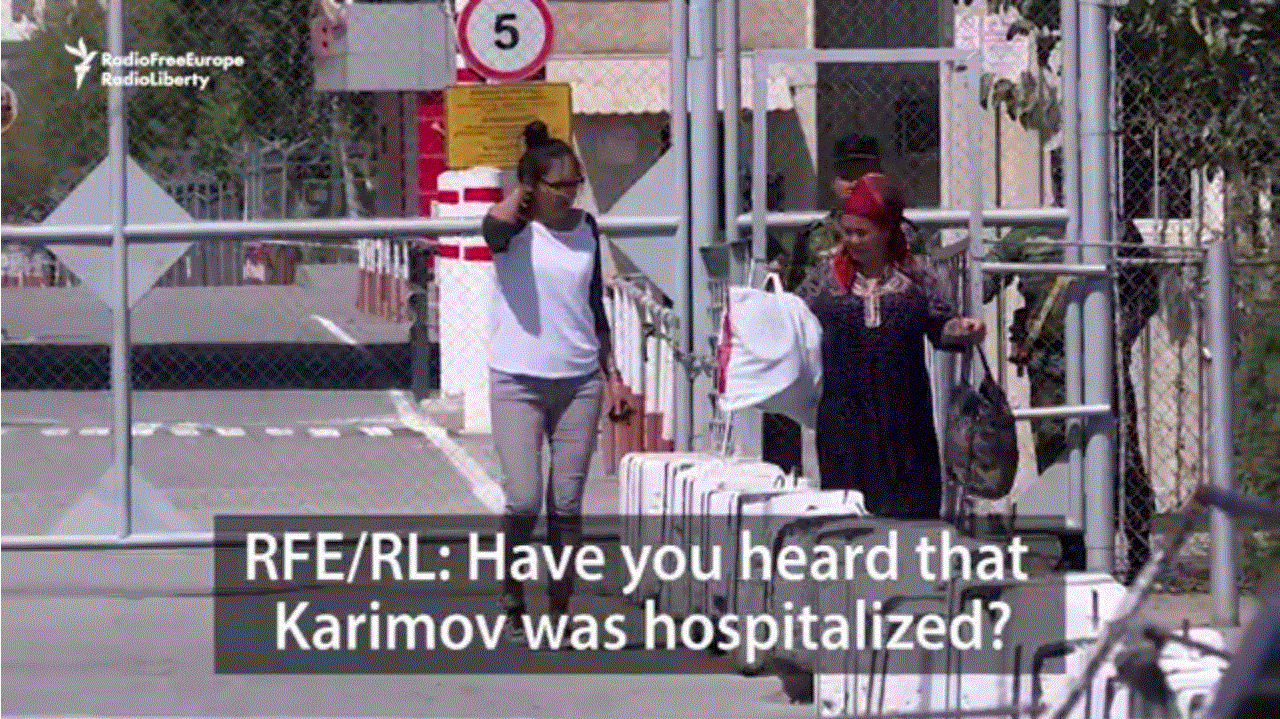
The internet was teeming with reporting and speculation over the death of Uzbekistan’s President Islam Karimov and the ensuing political succession. Much of that managed to reach Uzbek citizens through digital technology that challenges the government’s efforts to control information in this rigidly closed country.
Between August 28 and September 4, RFE/RL’s Uzbek Service, known locally as Radio Ozodlik, logged 3.8 million views on the social media platform Telegram, tripling its normal reach and engagement with Uzbek audiences. That week the Service’s website, despite being banned in Uzbekistan, registered 1.5 million visits, half from users inside Uzbekistan, an enormous increase over the 2 million visits the site normally attracts over an entire month. On September 2nd, the day Karimov’s death was officially announced, these visits contributed to the largest spike in RFE/RL page views since 2014. (RFE/RL’s website registered a record number of page views on February 20, 2014, in response to live reporting by its Ukrainian Service of snipers shooting protesters in Kyiv).
The audience statistics reflect Radio Ozodlik’s intensive reporting of early indications of Karimov’s sudden illness and eventual death. By the time Uzbekistan’s state-run information agency declared the news, Radio Ozodlik had been posting on social media for days, and its website had published 40 articles, 15 videos, and eight photo galleries covering events. Its reporting drew upon unique images of late-night preparations for the president’s funeral in Samarkand, and other exclusive, locally sourced reports provided by citizen journalists.
Radio Ozodlik’s leading position in Uzbekistan’s information market is largely born of duress. Having removed its reporters from the country after the Uzbek government refused to extend the accreditation of its Tashkent bureau in 2005 in the wake of that year’s massacre in the eastern city of Andijon, it has had to pioneer strategies to gather and distribute the news and build and engage local audiences remotely. As a result, its current approach capitalizes on verifiable, local content generated by Uzbek citizens inside the country, and the viral, distributive power of such social networks as Skype, WhatsApp and Telegram.
The results are wide-reaching, interactive and fast, and pose a direct challenge to the monopoly on information the state could once presume. Says Uzbek Service Director Alisher Sidikov about Ozodlik’s use of new media technologies and their implications for the region’s dominant political model, “authoritarian regimes can no longer control media; we are at a tipping point.”



